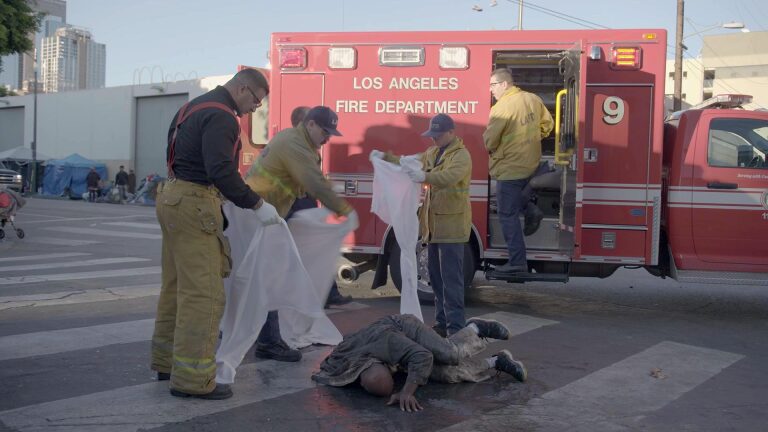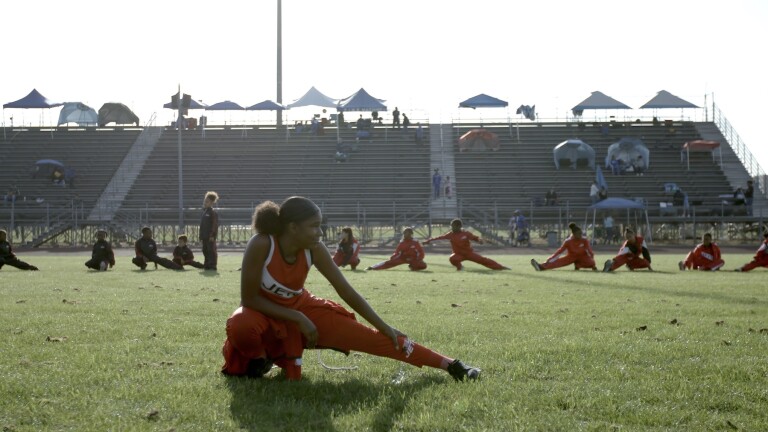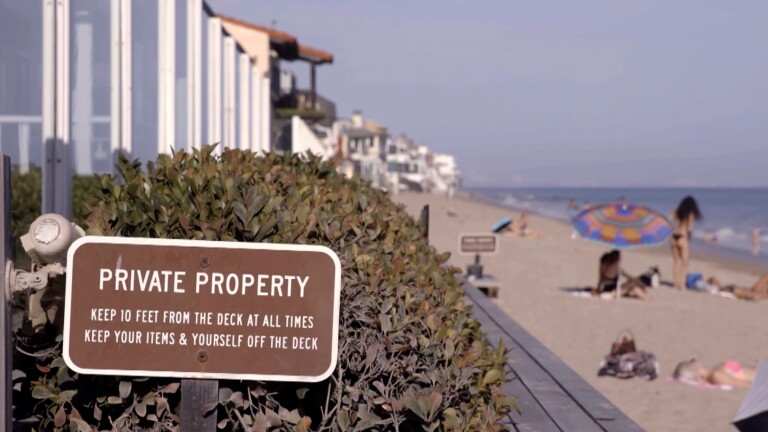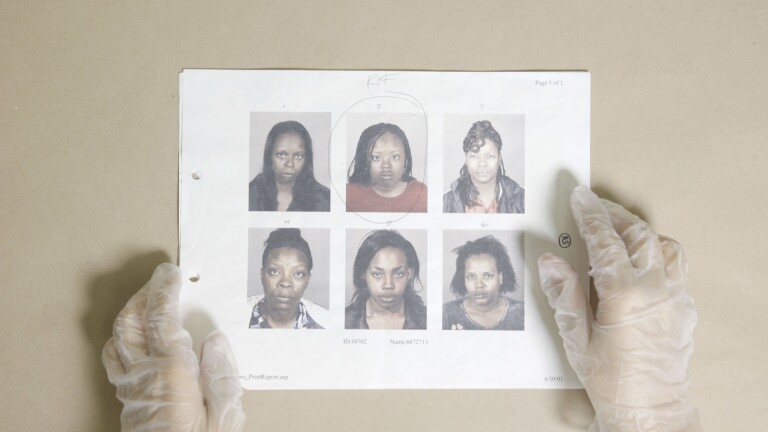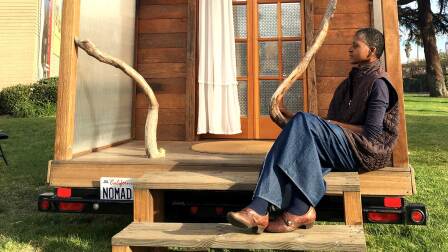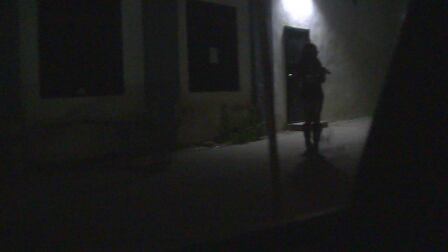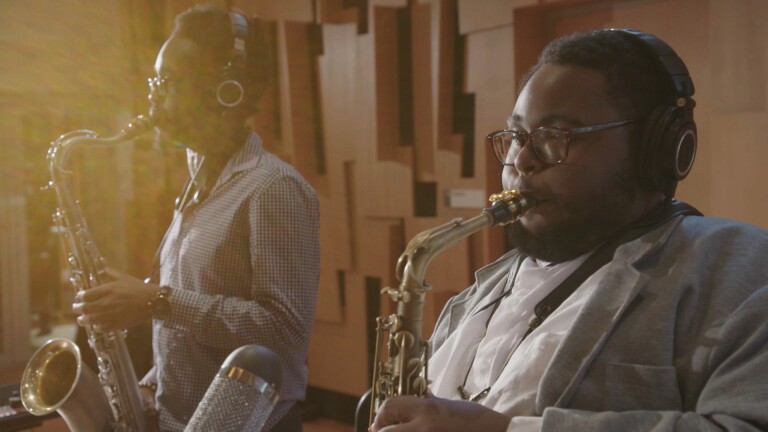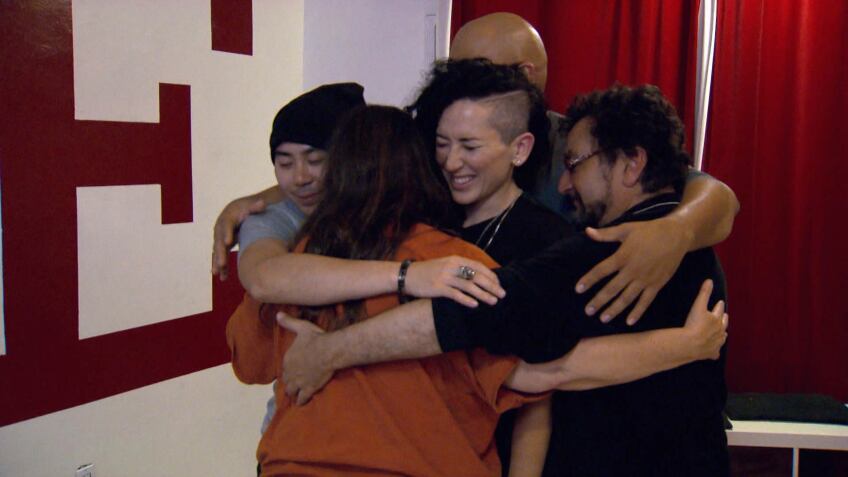
Hugs, Cuddles, and the Power of Human Touch
Are you a fan of hugs? At the Cuddle Sanctuary in Venice, huggers get together on a regular basis to help each other relieve stress, stimulate productivity, and create community through the power of human touch – platonic touch.
Reporter Dija Dowling explores hugging not only among adults, but also at the Torrance Memorial Medical Center. There she talks with a neonatologist about the benefits human contact brings to babies, and meets a volunteer who holds and cuddles preemies in the neonatal unit.
Physical affection has been shown to increase levels of oxytocin, otherwise known as the "feel good" hormone. But is that enough to get Dija Dowling – a reluctant hugger – to overcome her inhibitions? Dowling cautiously attends a hugging session to find out why some people actually set aside time to cuddle.
- Jean Franzblau, founder, Cuddle Sanctuary
- Travis Ashkenasy, professional cuddler
- Fei Wyatt, cuddle workshop leader
- Nancy Rouse, infant cuddler
- Dr. Shibani Patell, Neonatology Torrance Memorial Medical Center
Transcript
Dija Dowling: There are all kinds of hugs. There are romantic hugs, robot hugs, awkward hugs, bro hugs, even adorable baby elephant hugs. For most people, hugs are just an afterthought. But I found a place where hugging is more than that – it’s the main event.
Jean Franzblau: Just make yourself at home, treat this like your living room as you do.
Dija Dowling: It’s a cuddle workshop held at a yoga studio in Venice. Jean Franzblau, the founder, explained a bit about what they do there.
Jean Franzblau: Cuddle Sanctuary is a workshop and social experience where touch is welcome, it is never required but it’s certainly a place where healthy human touch is embraced…
Dija Dowling: We all warmed up and stretched together.
Jean Franzblau: So many of us we spend our days in our brain, we're thinking, we're typing , we're working we're computing, this is your time to get into your body and breathe.....Can I have a hug?
Dija Dowling: But I was still really uncomfortable with the idea of strangers touching me. Travis helped me through it and explained that the most important rule of Cuddle Sanctuary is that you can say, “no.” But you don't have to.
Travis: Yeah. I think once you see it a little bit you'll realize it's kind of no big deal.
Dija Dowling: OK.
Travis: Because the logic for me is it's not really like weird for me to cuddle a pet it's not really weird for me to cuddle a friend I don't see this as anything different.
Dija Dowling: But if finding someone to hug can be so simple, then why show up here once a week?
Jean Franzblau: This is the heartbreaking part is most people feel like the only way they can get hugged is if they’re in a sexual relationship, or a partnership, or a marriage, and what if you’re not? Half of America is single, that’s over 124 million people who may have limited access to touch
Dija Dowling: Mark started coming here after he lost his wife.
Mark: My wife passed away about 5 years ago, and when I moved to LA about that time I started dating, and I was like man I missed it, I had it for 22 years and then I didn’t have it anymore and it’s been a great community and an amazing thing, because I can make better choices in the other part of my life …
Dija Dowlnig: But what if you’re in a relationship like Fei?
Fei: I’m married.
Dija Dowling: Okay, and what does your spouse think of this?
Fei: He is very supportive; it’s not his thing, for him there’s a little bit of a barrier, because he's less open to connecting with strangers or new people.
Dija Dowling: But to be supportive, he still is like okay, do your thing?
Fei: Yeah, he is, and he really loves the Fei that he gets when I comes home, I mean I'm glowing, I’m happy, I feel like I have community.
Dija Dowling: If human touch can be healing for adults, it may be even more beneficial for babies. Torrance Memorial Medical Center’s Neonatal Intensive Care Unit has an infant cuddling program. I spoke to one of their volunteer cuddler Nancy Rouse. While she held possibly the most well behaved baby on the planet.
Nancy Rouse: This is what we do, sit here and rock.
Djia Dowling: Can you explain to me what goes on when you pick a baby up?
Nancy Rouse: If the babies really crying and upset because their hungry, or because they need a diaper change, just by picking the baby up they kind of melt into your arms, and they just become, she’s totally relaxed right now, and you can see it in their face, not only does the crying stop, the little furrow in their brow goes away.....
Dija Dowling: Doctor Shibani Patell explained a bit more detail how the babies react to being cuddled.
Dr. Shibani Patell: When we look at the monitor we can see that the heart rate that was high when baby was crying comes down…That’s one effect for soothing and calming, if you calm the baby and reduce the stress hormones, maybe, maybe it will help with the neurodevelopment.
Nancy Rouse: I really think that they’re going to grow up and be happier, when they leave here we know that we gave them that little boost that they needed
Shibani Patell: I think that human touch has a value in everybody’s life.
Dija Dowling: Maybe that’s it, maybe in a world that can be tough to say the least, just being allowed to touch, hold, to be given that “little boost” by someone is something special. I don’t know for sure, but I do know that I got to be part of one hell of a group hug. Oh you guys are cozy. I’m Dija Dowling with "SoCal Connected."

